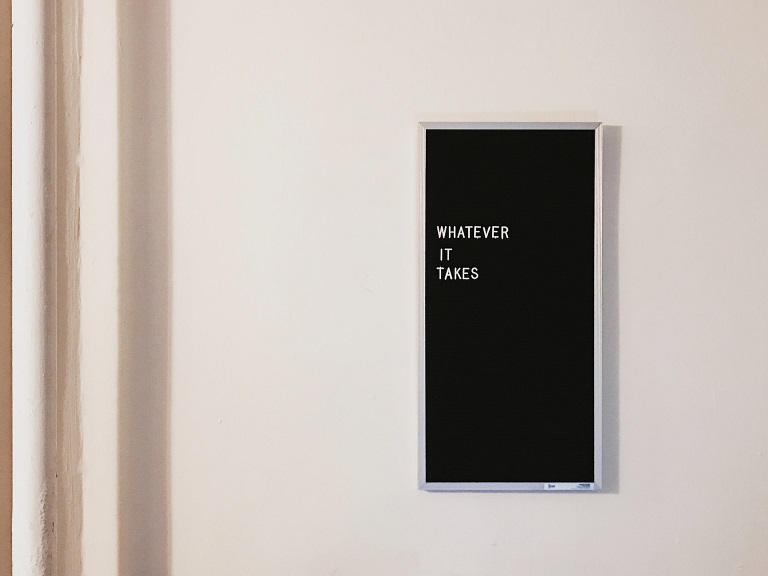What Is Residential Drug Rehab?
Inpatient treatment, likewise referred to as residential treatment, provides the highest level of rehab services for patients diagnosed with alcohol or other drug addiction. Normally, inpatient drug rehab programs include medical detox and incorporated mental health services. With your approval, rehab staff might also talk with your member of the family and consult with specialists you might currently be working with to resolve your needs and challenges. Because addiction is a disease that affects your body, mind and spirit, a multidisciplinary team is brought together to supply you with a holistic recovery strategy. Your licensed employee for residential treatment may include:
- Physicians
- Nurses
- Psychiatrists
- Psychologists
- Certified marriage and family therapists
- Accredited addiction counselors
- Nutritionists
- Wellness and fitness professionals
- Continuing care planners
- Monetary supporters
- Medical case supervisors
All set to take the next step?
Call (866) 503-4950 today and our team of recovery experts will figure out the most effective substance abuse treatment programs and services to assist you recover your life from addiction.

The Advantages of Residential Drug Rehab
Residential rehab, and numerous kinds of inpatient rehab, use specific advantages that other forms of treatments might not constantly use. A few of these advantages consist of:
- The capability to detox in a safe and secure environment offering 24/7 care and support.
- The ability to work through drug abuse issues, codependency, co-occurring disorders, and injury in a safe and safe and secure environment.
- Numerous therapies.
- A tight-knit community with whom to process all stages of substance abuse recovery.
Regardless of the big quantity of benefits that residential rehab offers, all types of substance abuse treatment prove beneficial for those wanting to recover from drug abuse issues. To learn more about various inpatient and residential treatment programs near you in Knollwood, Illinois, call: (866) 503-4950
Inpatient Vs. Outpatient Rehab in Knollwood Illinois
Inpatient And Outpatient Addiction Treatment
Alcohol and drug treatment programs typically fall under 1 of 2 classifications– inpatient or outpatient rehab. While equally focused on rehab, each type has distinct qualities and benefits to offer. Inpatient rehabilitations are intensive, residential treatment programs designed to treat serious addictions. Outpatient rehabilitations are part-time programs, enabling the recovering user to keep going to work or school throughout the day. It’s important that both the individual with a substance use disorder (SUD) and their loved ones comprehend the distinctions prior to choosing an inpatient or outpatient treatment program. Exploring all alternatives prior to making a decision can put you or a loved one on the road to recovery long-lasting sobriety.Inpatient Rehab And Treatment
Inpatient recovery programs, also called residential treatment, require clients to inspect themselves into a controlled environment to overcome their addictions. Clients stay at a clinic with 24-hour medical and emotional support.Getting Ready For Inpatient Rehab in Knollwood
It is essential to appropriately get ready for rehab. There’s no set amount of time required to get ready for treatment. It is important to set an entry date for rehab and to have affairs settled before that date. A few of the important things to take care of before going into rehab include:- Speaking to your company
- Finding living arrangements for children or other member of the family
- Preparation how to get to and from the recovery center
- Discovering what personal products are enabled
Family Support And Contact In Inpatient Rehab
Effective inpatient centers understand family involvement is vital to recovery. Relative can contact loved ones in residential treatment to supply emotional support and motivation. When it comes to how and how frequently citizens can communicate with their loved ones, each inpatient center’s policy is various. Some rehab centers also offer counseling for the family of the person in treatment.Daily Life Throughout Inpatient Rehab in Knollwood, IL
During inpatient treatment, homeowners are able to totally focus on recovering and sober without the distractions of daily life. A typical day in residential treatment is carefully arranged and represented. Psychologists, counselors, and psychiatrists meet clients individually and in group settings to guide inpatient recovery. A typical residential program runs anywhere from 28 days to 6 months. The first step in inpatient treatment is medically assisted detox. Physicians and addiction professionals monitor clients’ vital signs while the drugs leave the system. Drug cravings are common throughout detox and can be challenging to conquer, often leading to relapse. Continuous healthcare offered during inpatient treatment helps guard against regression. Clinicians can supply essential medicine and medical expertise to reduce cravings and withdrawals. The brain responds in a different way to various addictive compounds with time and a course of frequent use. Withdrawal signs aren’t enjoyable for any drug, however some drugs need to never ever be stopped without medical supervision. Some withdrawals can be deadly. Lethal withdrawals are linked to drugs like artificial Opiates, Benzodiazepines, alcohol, and Heroin. During inpatient rehab, patients have access to 24-hour medical attention. This attention can imply the difference in between regression and recovery.Outpatient Rehab And Drug Abuse Treatment
Outpatient drug rehab is less limiting than inpatient programs. Outpatient recovery programs normally need 10 to 12 hours a week invested visiting a local treatment center. These sessions concentrate on substance abuse education, individual and group therapy, and teaching addicted people how to cope without their drug. Outpatient drug rehab can be a good standalone alternative for somebody with a moderate addiction, or it can be part of a long-lasting treatment program. Outpatient drug rehab can last 3 to 6 months– something similar to inpatient treatment– or over a year.Outpatient Detox Programs in Knollwood
Patients with mild-to-moderate drug withdrawal symptoms may find outpatient cleansing a fitting option to residential detox. Outpatient detox is safe, reliable, and takes less time to finish than inpatient detox; the average outpatient detox is 6.5 days. Clients must go to a healthcare facility or other treatment facility for physical and mental check-ups during outpatient detox. Clinicians or medical professionals may administer medications on-site to soothe withdrawal symptoms like stress and anxiety, depression, and increased heart rate.How Does Detox Work?
Detox is the primary step in helping your brain and body heal from drug abuse. The detox process starts with assessments by medical doctors and nurses to determine which, if any, medical interventions are needed. Detox is mostly a time to flush the chemicals from your body, which can be an unpleasant experience without the right medical care to assist ease discomfort and/or drug yearnings. Medical personnel will work with you to examine your level of discomfort and offer you with medications, if needed, to attend to any discomfort or yearnings. During the detox process, you will be medically monitored 24/7 until medical staff identify you are stable adequate to take part in rehab programming and activities.Social Support in Knollwood During Outpatient Rehab
Outpatient drug rehab permits those in recovery to remain in your home throughout treatment. Those undergoing outpatient drug rehab can continue working and stay near to friends and family. Outpatient treatment centers normally conduct conferences at night or in the morning, assisting those in the program preserve their regular schedules. Twelve-step groups like Alcoholics Anonymous (AA) and Narcotics Anonymous (NA) might be used as part of outpatient treatment. Studies reveal that participating in recovery groups like AA and NA helps recovering addicts remain sober. Numerous individuals with a substance use disorder (SUD) also turn to outpatient treatment after finishing an inpatient program as part of their continued recovery.Inpatient treatment programs generally cost more than outpatient drug rehab. The on-hand healthcare and psychotherapy readily available to residential rehab clients increases treatment costs. The price difference must not motivate or dissuade somebody from choosing the very best treatment path for them.
Just How Much Does Residential Drug Rehab in Knollwood Cost?
The cost of inpatient rehab programs depends on the treatment center picked, the level of medical care recommended, and the length of time in treatment. The quantity you pay will likewise depend on whether you’re able to gain access to insurance benefits to assist cover the cost or you’re paying out-of-pocket. Many treatment centers are in-network with many insurance carriers, and the majority of clients use their health insurance advantages to assist cover treatment costs. Insurance plan and benefits differ considerably, so it is essential to contact your provider about protection specifics in your case. Some clinics use patient monetary assistance funds, on a limited basis, to assist offset the cost of addiction treatment for certifying clients – please call (866) 503-4950 today to ensure you qualify.Residential Drug Rehab Knollwood Illinois?
Your initial step is to call our friendly support team on (866) 503-4950 for a confidential phone assessment. You will talk with a recovery professional who will identify whether drug or alcohol treatment is required and, if it is, will recommend the appropriate level of care and deal with you to collaborate insurance benefits. If alcohol or drug addiction is not clearly suggested or if you’re not ready to devote to an inpatient stay, you can benefit from other services such as mental health sessions, coaching, enjoy a webinar, or listen to a podcast to get more details or to get motivation.Whatever The Choice, Recovery Is Around The Corner
No matter which treatment option in Knollwood you choose for you or a loved one, rehab can alter your life. Addiction is a chronic health problem, and recovery is a long-lasting process. Doctor, mental health counselors, and community groups like AA can teach the essential skills to avoid regression. Take the primary step towards recovery and contact a treatment company today.Prepared to take the next step?
Call (866) 503-4950 today and our team of recovery experts will determine the most reliable drug abuse treatment programs and services to help you recover your life from addiction.

